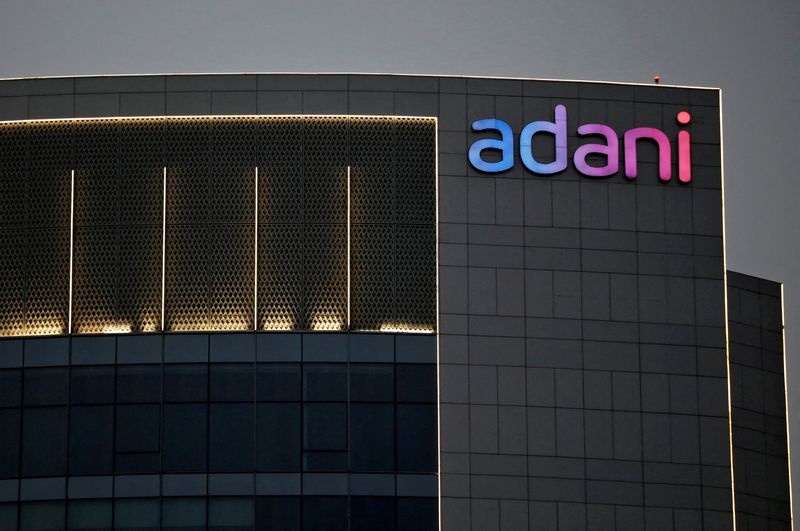By Anshuman Daga, Scott Murdoch and Svea Herbst-Bayliss
SINGAPORE/NEW YORK (Reuters) - Hindenburg Research's spectacular short bet against India's Adani group could lead other investors to consider using similar strategies in the South Asian nation but regulatory hurdles and shareholding constraints will make them tough to implement.
U.S.-based Hindenburg revealed a short position last month in the ports-to-cement conglomerate, alleging improper use of offshore tax havens and stock manipulation by the group, which Adani denies.
The report and its aftermath wiped out $110 billion from Adani's listed stocks in slightly more than a week, and its flagship Adani Enterprises was forced to abandon a $2.5 billion stock offering.
Short sellers typically sell borrowed securities and aim to buy these back at a lower price. Opaque corporate ownership, poor governance and weak regulatory oversight make Asia, including India and China, a tempting opportunity for short-sellers, said analysts and investors.
Hindenburg's bold bet against Adani could be seen as a template to its peers, as short-sellers look beyond the traditional markets for new targets that have seen a meteoric rise in stock values in the last few years.
"The report and subsequent media coverage means that a variety of investors who haven't been present in India may start looking at India," said Shriram Subramanian, founder of Bengaluru-based corporate governance and proxy advisory firm InGovern Research Services.
It is rare for investors to take short positions in securities of Indian companies. New York-based Hindenburg's position on Adani is the first such high-profile case in the last few decades.
"Many companies are promoter or founder led companies and they hold a high percentage of the shareholding," said Sharmila Gopinath, specialist adviser to the Asian Corporate Governance Association.
"And while short selling is a way to keep a check on controlling shareholders, companies with a good story would always be able fend them off."
CHALLENGES
Most regulators in Asia take a dim view of short attacks by foreign companies in their respective markets, at times accusing them of manipulating markets and trying to engineer a crash for their own monetary gains.
"We see this time and again in developing markets that the local culture and rules of law are far from what western investors are used to," said Carson Block, founder of Muddy Waters (NYSE:WAT) Research and a prominent short seller.
In India, for example, naked short-selling, which involves selling shares without first borrowing them, is not permitted. Such positions are possible in some developed markets.
Securities rules in India also make it hard to quietly build short positions. Institutional investors are obliged to disclose their short positions upfront and there are other restrictions and registration requirements on foreign investors.
"The key for short sellers to earn profits depends on how capably they can establish the short position before others are aware of bad news," said Rencheng Wang, an associate professor of accounting at Singapore Management University.
Other major challenges for short-sellers in India include very high founder ownership, resulting in fewer investors available to borrow shares from, and very few companies having a deep pool of offshore securities, analysts say.
In Adani, for example, Hindenburg held the short positions through U.S.-traded bonds and non-Indian-traded derivatives.
"Because India, like many other emerging markets, constrains short selling, this limits the incentives for short-sellers to engage in public short campaigns in these markets," said Herve Stolowy and Luc Paugam, professors of accounting and management control at business school HEC Paris.
As a result, short-sellers have had limited success in Asia.
China's strict investment rules make it all but impossible to take short positions in domestic-listed Chinese stocks from overseas. Hong Kong shares which are targetted in short attacks can request a trading halt, limiting the potential damage.
Referring to the Adani development, Andrew Left, founder of U.S.-based short-seller Citron Research, said India now needed to decide whether it wanted to be like China or the United States.

"If it is China, then they will pursue Anderson and investigate him for wrongdoing," Left said, referring to Hindenburg's founder Nathan Anderson. "If it is the United States, regulators will look at Adani."
Left himself was banned from Hong Kong's market for five years in 2016 after he was found culpable of market misconduct related to the publication of a critical research report on property developer China Evergrande Group, whose liquidity troubles two years ago fuelled a property sector crisis in the mainland.